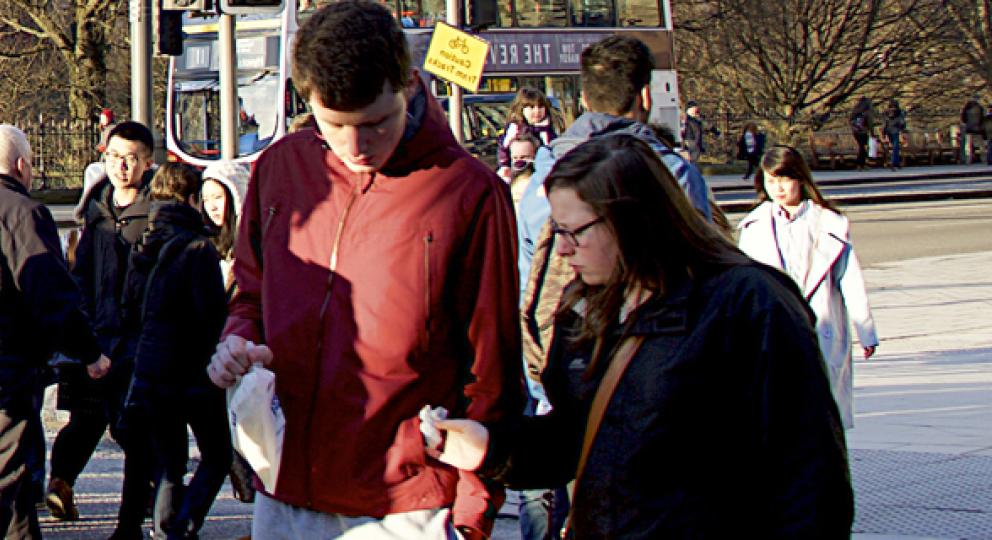Fund for race discrimination cases
Many people in Britain have experienced prejudice and discrimination because of their race.
We want to improve outcomes for victims of discrimination and racial harassment.
We also want every employer, service provider and educational establishment to understand their responsibilities and what the consequences of not following the law are.
If you think you have experienced race discrimination and don’t have a legal representative, please contact the Equality Advisory and Support Service (EASS). EASS will talk to you about your complaint and provide you with advice and support.
If you want to seek legal redress and your complaint is eligible for the fund, EASS may refer your case to us and we can assign one of the firms from our panel of solicitors to your case. The solicitors may then make an application to EHRC for funding so that they can help you pursue a legal claim to access justice.
If you are a legal practitioner with a client who may be eligible for support from the fund, please complete the below application form and send to RaceSupportFund@equalityhumanrights.com.
Cases must meet these three criteria to be eligible for funding:
-
Your client is a victim of alleged race discrimination prohibited under the Equality Act 2010.
-
The claim is within, or has been started within, the legal time limit.
-
Your client does not have access to other sources of funding for this matter. Other funding options could include legal aid, insurance or trade union support.
Our Legal Support Scheme
Our fund for race discrimination cases is part of our Legal Support Scheme.
People who experience discrimination can find it difficult to cover the costs of taking legal action.
Our Legal Support Scheme began in 2017. It provides vital funding and legal assistance to individuals so they can access the justice they deserve.
We also continue to take landmark cases that make the law clearer and set a precedent.
Previous legal cases and projects
When Sandeep and Reena Mander applied to adopt a baby, they were told White couples would be given preference. We supported their legal case and the court ruled they had been discriminated against.
Past project: discrimination in education
In 2017, we started a project to address identity-based bullying and discrimination in education.
Examples of this discrimination can include:
- disabled students not being offered part-time courses as a reasonable adjustment
- excluding a much higher number of pupils of a particular race
This project led us to take Ruby’s case. Ruby took her school to court after it enforced a uniform policy that banned Afro hair with too much volume.
When the school didn’t respond to the claim, the court issued a default judgment in her favour and the family reached a settlement.
We funded the case through court and secured a legally binding agreement with the school. The school had to end the discriminatory policy and must consider factors such as race and religion when determining what a ‘reasonable’ hairstyle is.
Past project: discrimination on public transport
We challenged transport operators to ensure that they met their legal responsibilities, so that this acts as a deterrent to others.
Funding for new cases under this project has now ended, but we will still consider applications from legal representatives for cases that may meet our business priorities and the criteria in our strategic litigation policy.
If you are a legal representative and wish to contact us about an issue, visit our contacts page.
If you have experienced discrimination and need information, advice and support, please contact the Equality Advisory and Support Service (EASS).
Past project: disability discrimination
People who have experienced disability discrimination may find it difficult to take legal action because of a shortage of funding or assistance.
In 2017, we set out to improve the situation by launching the legal support project.
The pilot scheme provided funding and legal support for individuals who had experienced disability discrimination.
In total, we provided £189,000 for legal assistance across 94 cases.
Thanks to our funding, Tara Porter was able to pursue a case against Network Rail on behalf of her son Owen, who was unable to use his local railway station because it did not have step-free access. Without the funding, Tara would not have been able to access advice from a barrister.
After the success of the pilot project, we provided more funding to support discrimination cases in education, housing and social security. These schemes are now closed.
Last updated: 06 Sep 2017




